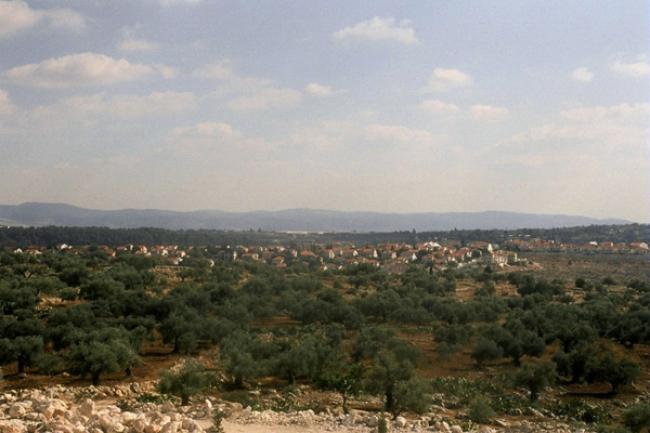23 Oct 2014, 06:57 am Print

“The annual olive harvest is a key economic, social and cultural event for Palestinians,” said UN Humanitarian Coordinator, James W. Rawley, during his visit.
“Immediate action in support of olive farmers is required. This includes ensuring protection from attacks by settlers; accountability for settler violence; the lifting of restrictions on Palestinians' access to their agricultural land; and continued support to olive producing communities,” said Rawley.
Joining Rawley on his field visit were members of the diplomatic and donor community, the Palestinian Ministry of Agriculture, and representatives of humanitarian organizations.
They heard from community representatives and olive farmers in the towns of Al Janiya in the Ramallah governorate, and Biddu in the Jerusalem governorate describe the negative impact that continued settler violence and access restrictions to their olive groves have on their livelihoods.
Every year, communities with olive groves located between the barrier and the “Green Line”, and in the vicinity of Israeli settlements in the West Bank, face serious challenges in maintaining and harvesting their olive crops. This undermines livelihoods and increases dependency on aid.
The olive oil industry constitutes 25 per cent of the occupied Palestinian Territories' agricultural income. From 2006 to the end of September 2014, the UN Office for the Coordination of Humanitarian Affairs (OCHA) recorded over 2,300 settler-related incidents resulting in Palestinian casualties or property damage in the West Bank, including East Jerusalem.
From 2009 to the end of August 2014, nearly 50,000 fruit-bearing trees, mainly olives, were destroyed or damaged in such incidents. Approximately 150 Palestinian communities have land located between the Barrier and the Green Line.
Only some 50 per cent of permit applications for farmers' access to their own agricultural land are approved during the olive harvest, based on monitoring by OCHA over a four-year period.
Olive trees in the Palestinian town of Ni'lin in 2008 were very close to expanding Israeli settlements. Photo: IRIN/Shabtai Gold
- Pakistan: Police recover two bullet-ridden bodies from Balochistan
- IDF strikes Hezbollah targets in Lebanon after projectile fire toward Northern Israel; 31 killed
- Pakistan: Armed gunmen kidnap 14 workers during coordinated raids in Balochistan
- ISIS-inspired plot foiled in UK: Two men get life sentences for targeting Jewish community
- India rejects allegations, urges Pakistan to tackle its ‘home-grown ills’





-1763561110.jpg)
